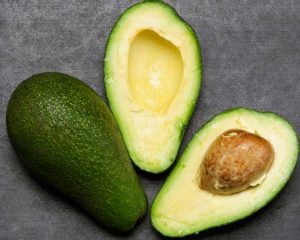- Home
- Editorial
- News
- Practice Guidelines
- Anesthesiology Guidelines
- Cancer Guidelines
- Cardiac Sciences Guidelines
- Critical Care Guidelines
- Dentistry Guidelines
- Dermatology Guidelines
- Diabetes and Endo Guidelines
- Diagnostics Guidelines
- ENT Guidelines
- Featured Practice Guidelines
- Gastroenterology Guidelines
- Geriatrics Guidelines
- Medicine Guidelines
- Nephrology Guidelines
- Neurosciences Guidelines
- Obs and Gynae Guidelines
- Ophthalmology Guidelines
- Orthopaedics Guidelines
- Paediatrics Guidelines
- Psychiatry Guidelines
- Pulmonology Guidelines
- Radiology Guidelines
- Surgery Guidelines
- Urology Guidelines
Avocados compound may slow down weight gain, prevent diabetes

Avocado consumption has been linked to beneficial cardiac effects, cholesterol reduction and weight-loss for a long time.But in addition to managing obesity, they may also hold the key to help delay or prevent diabetes, according to new research.
Prof. Paul Spagnuolo and researchers at the University of Guelph have found that a compound avocatin B found only in avocados can slow down weight gain and prevent diabetes. In safety testing in humans, the team also found that the substance was absorbed into the blood with no adverse effects in the kidney, liver or muscle. The study has recently been published in the journal Molecular Nutrition and Food Research.
Obesity, a chronic condition is a leading cause of Type 2 diabetes. Insulin resistance in diabetic patients also increases implying that their bodies are unable to properly remove glucose from the blood.These complications can arise when mitochondria, or the energy powerhouses in the body's cells, are unable to burn fatty acids completely.Obesity or diabetes hinders fatty acid oxidation leading to incomplete oxidation and fat accumulation
The U of G researchers discovered that avocatin B (AvoB), a fat molecule found only in avocados, counters incomplete oxidation in skeletal muscle and the pancreas to reduce insulin resistance.
In their study, the team fed mice high-fat diets for eight weeks to induce obesity and insulin resistance. For the next five weeks, they added AvoB to the high-fat diets of half of the mice.
The treated mice weighed significantly less than those in the control group, showing slower weight gain. More important, said Spagnuolo, the treated mice showed greater insulin sensitivity, meaning that their bodies were able to absorb and burn blood glucose and improve their response to insulin.
In a human clinical study, AvoB given as a dietary supplement to participants eating a typical western diet was absorbed safely into their blood without affecting the kidney, liver or skeletal muscle. The team also saw reductions in weight in human subjects, although Spagnuolo said the result was not statistically significant.
Having demonstrated its safety in humans, they plan to conduct clinical trials to test AvoB's efficacy in treating metabolic ailments in people.
Spagnuolo said the safety trial helped the team to determine just how much AvoB to include in the supplement formulation.
Having received Health Canada approval for the compound as a human supplement, he will begin selling it in powder and pill forms as soon as 2020 through SP Nutraceuticals Inc., a Burlington, Ont.-based natural health products company.
He said eating avocados alone would likely be ineffective, as the amount of natural avocatin B varies widely in the fruit and we still do not fully understand exactly how it is digested and absorbed when we consume a whole avocado.
Although avocados have been touted as a weight-loss food, Spagnuolo said more study is needed. He said a healthy diet and exercise are recommended to prevent metabolic disorders leading to obesity or diabetes.
PhD student Nawaz Ahmed, lead author of the paper, said, "We advocate healthy eating and exercise as solutions to the problem, but that's difficult for some people. We've known this for decades, and obesity and diabetes are still a significant health problem."
For further information log on to:
http://dx.doi.org/10.1002/mnfr.201900688
AvoBAvocadosavocatin BdiabetesendocrinologyJournal Molecular Nutrition and Food ResearchMolecular NutritionObesityweight loss
Source : Journal Molecular Nutrition and Food ResearchNext Story
NO DATA FOUND

Disclaimer: This site is primarily intended for healthcare professionals. Any content/information on this website does not replace the advice of medical and/or health professionals and should not be construed as medical/diagnostic advice/endorsement or prescription. Use of this site is subject to our terms of use, privacy policy, advertisement policy. © 2020 Minerva Medical Treatment Pvt Ltd